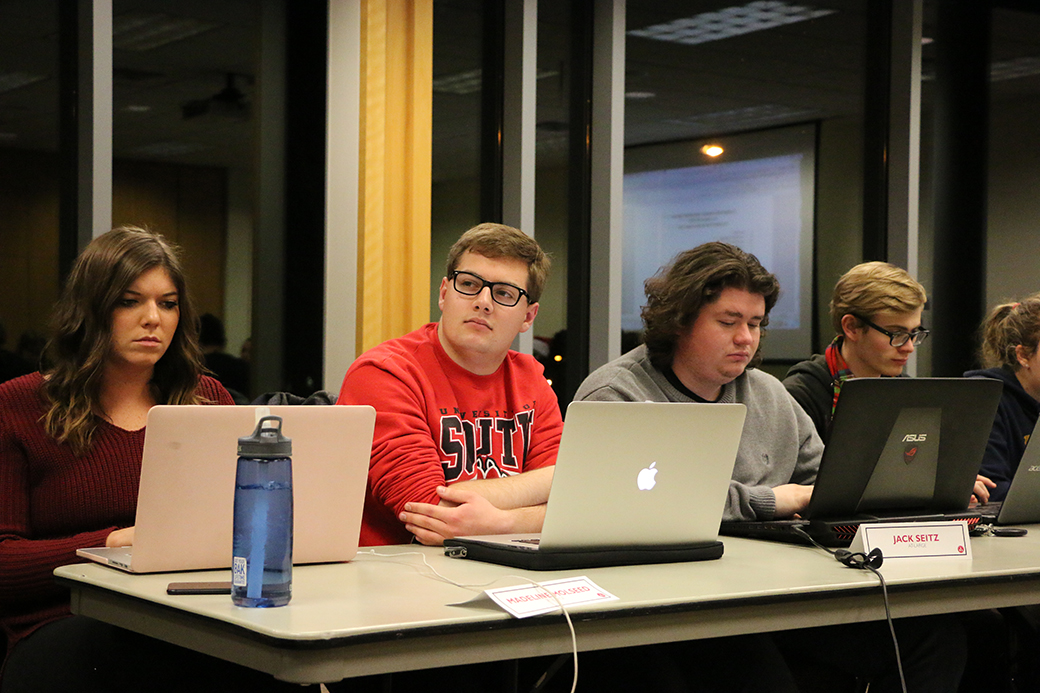
SGA discusses changing wording of bylaws to be more inclusive
The use of pronouns in the Student Government Association’s constitution and bylaws is up for debate, as senators discussed a potential change in wording at the last meeting of the semester Tuesday evening.
According to some SGA senators, the current constitution isn’t as inclusive as they’d like it to be because of the use of the words “his” or “her.” In order to make it more inclusive, they said that replacing those gender specific pronouns to “the senator” would make the constitution more inclusive.
At-large Senator Olivia Mann said she’s pleased with the move toward altercating the wording.
“I think it’s a really great step forward,” she said. “It may seem small, but it means something.”
This resolution was sent to the Internal Review Committee, and will be voted on next semester.
The SGA also discussed a potential resolution that would proclaim the University of South Dakota as a community of tolerance and acceptance as well as a bill that would amend the constitution bylaws to make SGA more inclusive.
A resolution to proclaim USD as a community of tolerance and acceptance wasn’t voted on; however, senators, including Mann, said they believed it would make a difference to many students.
“I think it will mean a lot to students who are feeling unsafe,” Mann said. “I think that this is hugely important to members of our student body.”
This resolution was not voted on, but will be voted on in the spring semester.
Senators ended their discussion by briefly discussing the upcoming election season. At-large Senator Lucas Lund said he believed that shortening the time period in which candidates would have to run would keep students interested in the elections.
“I genuinely think that having a condensed campaign would increase the voting turnout,” Lund said.
At-large Senator Marcus Ireland, among other senators, said he didn’t agree that shortening the season would make a difference in the voting turnout.
“I think their interest is either there from the beginning, or it’s not,” Ireland said.

